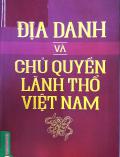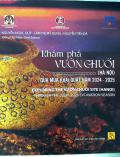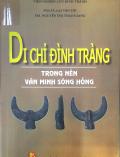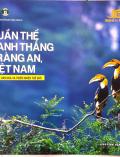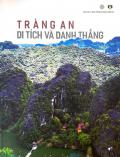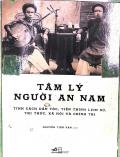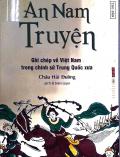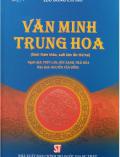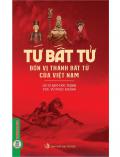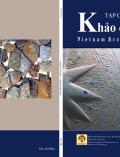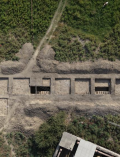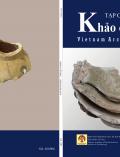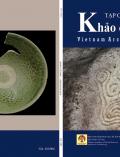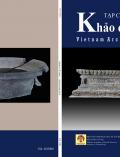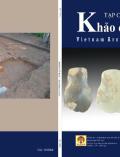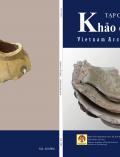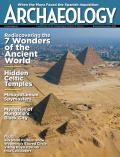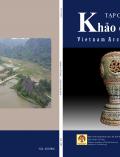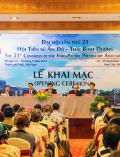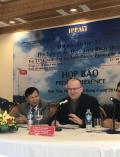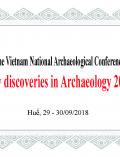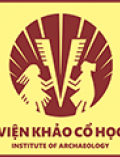Human Modernity in South and Southeast Asia: Recent developments in understanding the arrival, dispersal(s), and early material evidences of Anatomically Modern Homo sapiens
ABSTRACT:
The South and Southeast Asian regions have long been of interest to researchers of archaeology due to the cultural, linguistic, biological, genetic diversity they possess; the presence of intriguing archaic populations (e.g. Homo floresiensis, and the Callao cave and Narmada fossils); and even the potential introgression of ancient hominins (i.e. Denisovans) with anatomically modern Homo sapiens (AMHs). In recent years, growing research has put the regions under the limelight to elucidate its crucial role and strategic position in understanding AMHs movement(s) within the Indo-Pacific region.
This session seeks to highlight and discuss recent developments on modern human dispersals, population histories, and early material evidences in South and Southeast Asia. By promoting an interdisciplinary perspective and holistic understanding of the current debates of this theme, papers regarding palaeoanthropological, genetic, linguistic, and material evidences -- including those dealing with indicators of possible modern human behaviour, art and symbolism, that highlight their movement and exploitation of these regions -- are invited. Studies employing novel scientific methods such as 3D analyses are also welcomed.
A multidisciplinary effort in tackling debates involving the timing, routes, migration event(s), biological-cultural affinities of modern human arrival(s) into this region is most encouraged, and is
the primary objective of this session.
Session Convenors:
Andrea Dominique COSALAN
Manila, Philippines
admcosalan@yahoo.com
Akash SRINIVAS
Indian Institute of Science Education and Research (IISER), Mohali, India
akashs91@yahoo.co.in
The South and Southeast Asian regions have long been of interest to researchers of archaeology due to the cultural, linguistic, biological, genetic diversity they possess; the presence of intriguing archaic populations (e.g. Homo floresiensis, and the Callao cave and Narmada fossils); and even the potential introgression of ancient hominins (i.e. Denisovans) with anatomically modern Homo sapiens (AMHs). In recent years, growing research has put the regions under the limelight to elucidate its crucial role and strategic position in understanding AMHs movement(s) within the Indo-Pacific region.
This session seeks to highlight and discuss recent developments on modern human dispersals, population histories, and early material evidences in South and Southeast Asia. By promoting an interdisciplinary perspective and holistic understanding of the current debates of this theme, papers regarding palaeoanthropological, genetic, linguistic, and material evidences -- including those dealing with indicators of possible modern human behaviour, art and symbolism, that highlight their movement and exploitation of these regions -- are invited. Studies employing novel scientific methods such as 3D analyses are also welcomed.
A multidisciplinary effort in tackling debates involving the timing, routes, migration event(s), biological-cultural affinities of modern human arrival(s) into this region is most encouraged, and is
the primary objective of this session.
Session Convenors:
Andrea Dominique COSALAN
Manila, Philippines
admcosalan@yahoo.com
Akash SRINIVAS
Indian Institute of Science Education and Research (IISER), Mohali, India
akashs91@yahoo.co.in
Thông báo
Thứ năm, 11 Tháng 12 2025- 17:31
Thứ hai, 29 Tháng 9 2025- 18:20
Thư viện
- Tác giả: Kim Quang Minh, Trịnh Anh Cơ
- Nxb: Hà Nội-2024
- Số trang: 184tr
- Khổ sách: 20,5x23cm
- Hình thức bìa: mềm
- Tác giả: Nguyễn Ngọc Quý, Lâm Thị Mỹ Dung, Nguyễn Tiến Đà
- Nxb: KHXH- 2025
- Số trang: 255tr
- Khổ sách: 24 x 22cm
- Hình thức bìa: mềm
- Tác giả: Lại Văn Tới, Nguyễn Thị Thao Giang
- Nxb: KHXH - 2025
- Số trang: 531tr
- Khổ sách: 16x24cm
- Hình thức bìa: mềm
-Tác giả: Ban Quản lý Quần thể Danh thắng Tràng An
- Nxb: Thế Giới-2024
- Số trang: 86tr
- Khổ sách: 26,5x25cm
- Hình thức bìa: mềm
-Tác giả: Ban Quản lý Quần thể Danh thắng Tràng An
- Nxb: Thế Giới-2022
- Số trang: 159tr
- Khổ sách: 20,6x28cm
- Hình thức bìa: mềm
- Tác giả: Paul Giran, Nguyễn Tiến Văn dịch
- Nxb: Hội Nhà văn
- Số trang: 264tr
- Khổ sách: 14,5x20cm
- Hình thức bìa: mềm
- Tác giả: Châu Hải Đường
- Nxb: Hội Nhà văn-2022
- Số trang: 323tr
- Khổ sách: 16x24cm
- Hình thức bìa: mềm
-Tác giả: Lưu Đông
- Nxb: Chính trị Quốc gia sự thật
- Số trang: 930tr
- Khổ sách: 16x24cm
- Hình thức bìa: mềm
-Tác giả: Ngô Đức Thịnh, Vũ Ngọc Khánh
- Nxb: Thế Giới-2025
- Số trang: 272tr
- Khổ sách: 13x20,5cm
- Hình thức bìa: mềm
Tạp chí
Dày 100 trang, khổ 19x27cm
Nằm trong thung lũng Fergana ở phía đông Uzbekistan, khu di tích Kuva, hiện trải rộng khoảng 110.000 mét vuông, từng là một đầu mối rất quan trọng trên Con đường Tơ lụa cổ đại. Mối liên hệ lịch sử của nó với Trung Quốc có từ hơn hai thiên niên kỷ trước, vì người ta tin rằng nó từng là một phần của nhà nước Dayuan cổ đại, được sứ thần Trung Quốc Trương Khiên ghi chép lại vào thời nhà Hán (202 TCN-220 CN).
Dày 100 trang, khổ 19x27cm
Dày 100 trang, khổ 19x27cm
Dày 100 trang, khổ 19x27cm
Dày 100 trang, khổ 19x27cm
Dày 100 trang, khổ 19x27cm
November/December 2025 - Archaeology Magazine
Dày 100 trang, khổ 19x27cm
Tin tức khác
24 Th9 2018 06:12
22 Th9 2018 11:09
28 Th8 2018 15:04
15 Th8 2018 13:10
25 Th7 2018 04:21
25 Th7 2018 04:19
Copyright © 2016 by khaocohoc.gov.vn.
Thiết kế bởi VINNO
Tổng số lượt truy cập: 10685080
Số người đang online: 14

